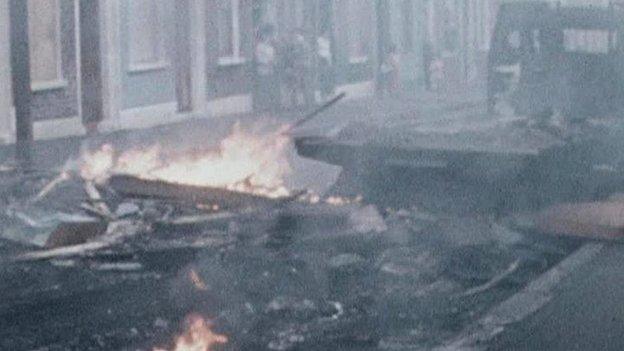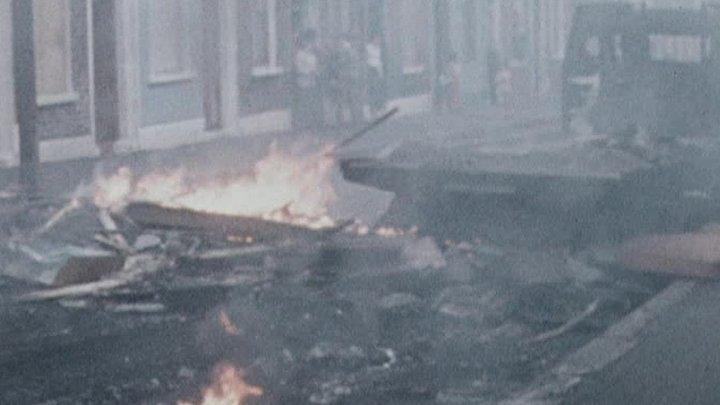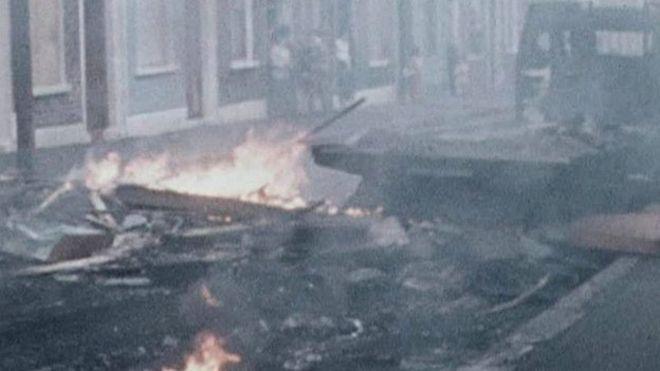Henry Thornton iquest: Killing of labourer not 'necessary, reasonable or proportionate'
- Published

Henry Thornton's death sparked serious rioting
A coroner has found that the killing of a labourer by a soldier in 1971 was not 'necessary, reasonable or proportionate'.
Henry Thornton, 29, was shot after the van he was driving passed Springfield Road police station in west Belfast.
The fatal shots were fired by a soldier known as Soldier A, who has since died.
The coroner at Mr Thornton's inquest said there were "other options available to stop or pursue the vehicle".
"In such circumstances the shooting of Mr Thornton was neither a necessary nor a reasonable nor a proportionate response to the situation Soldier A either actually encountered or thought that he encountered", he said.
Rioting
Mr Thornton was unarmed, but was shot in the head after the van he was in backfired.
His death sparked serious rioting.
Within days, 10 other people had been shot dead by the Army in a period that the bereaved families refer to as the Ballymurphy Massacre.
The inquest into his death began in November 2015.
Known as "Harry" to his family, Mr Thornton was an unarmed civilian who had no connection to any paramilitary group.
In 2012, the government wrote a letter of apology to his widow Mary, confirming that her husband had been an "innocent man".
- Published20 January 2015

- Published24 November 2015
